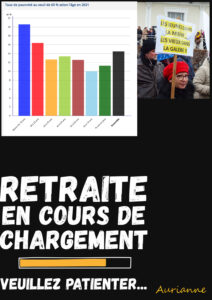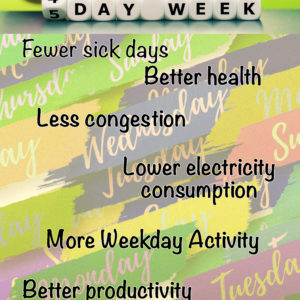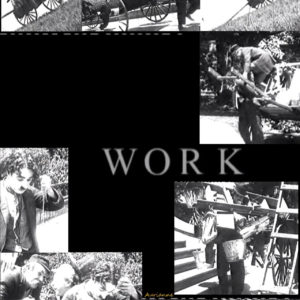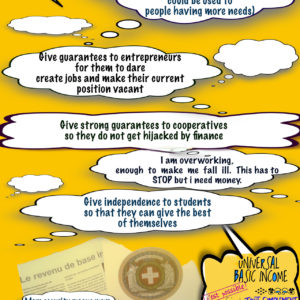Everyone talks about absence from work. But if you don’t show up for work, it’s professional misconduct and you can be fired for it. What we’re talking about is absence from work, which is justified by a sick leave, i.e. due to illness. To speak of absence from work without mentionning illness is to question the competence of the doctor who is supposed to make sick leaves without cause, and to deny the suffering of those who are absent from work.
We also hear the expression “call in sick”, as if we had a choice, as if it were something we could do without cause. Either you’re sick, or you’re able to go to work. It’s up to the doctor to judge, not the patient.
The image of the absentee is linked to that of a deserter who would compromise the outcome of the war.
There’s also the suffering of those who can’t take a break and hurt themselves even more. They continue to work when they should be at home, because of a moral rather than a medical judgment. They’re afraid they won’t get their contract renewed, won’t get a promotion or will be fired on the grounds that they’re lazy. They are made to feel guilty because others have done the work for them. But in the case of sick leave, it’s the social security system that pays the salary. Why doesn’t the employer hire replacements?
The work overload transferred to the other employees results in a cascade of sick leave, as the overwork makes them ill.
In addition, there are cases of sick leave absences due to a lack of flexibility on the part of the employer. Health appointments must be guaranteed. If the employer refuses to make arrangements, a sick leave is required.
Employers have a responsibility to provide a non-toxic work environment. Some people fall ill because the pressure is too great, or because they are harassed. What’s more, when people are forced to work beyond the age of 55, there will be sick leave. If retirement is only possible at 67, those who age badly will fall ill.
Business CEO are entitled to nothing. Their status does not allow them to take vacations or leave when they are ill. They are not entitled to unemployment cover. This creates an imbalance with employees. Why do they have this status? Everyone should have the same rights.
It’s true that there are some slackers, but we have to target them and accuse only those who are guilty.
This discourse is toxic.
Health insurance pays for these absences from work. Yet 60% of workers have “bullshit jobs”. In other words, the community is paying for work that provides no service whatsoever. If we implemented a universal basic income and eliminated these jobs that provide no service, there would be fewer absences, because there would be fewer employees and there would be a better pool of replacements.
Lack of confidence comes at a price. Since you need a medical leave, you have to go to the doctor. But there are waiting lists. Which means more days off work just to see the doctor. For minor ailments, trust should be enough. There’s no need to go and spread germs at the doctor’s, or to pay people to check that there’s a sick leave. The cost of checking is monstrous, and we’re blocking doctor’s appointments that could be more useful. Some people will cheat, but it will cost less in the end.
The motto is Liberté Egalité Fraternité (Liberty Equality Fraternity); we rely on trust that benefits us all. A controlling society is detrimental to all. Fraternity enables everyone to live in dignity, without conditions. There will be slackers and lazy people who will have to be sorted out, but the result for the whole is better.
What matters is that the work is well done and useful; it’s not how much time you spend at work.












